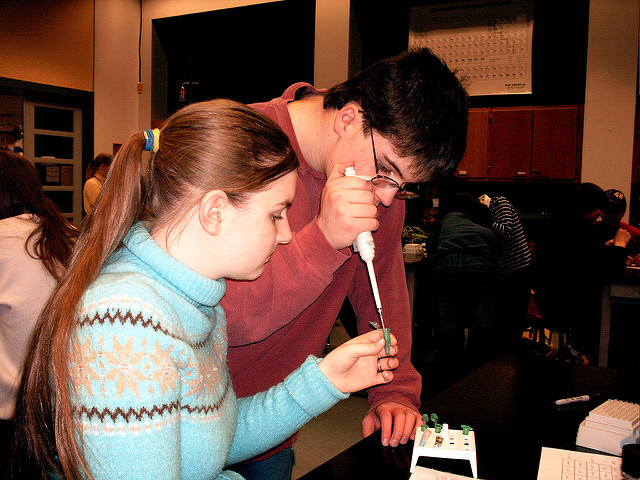DIY Gene Editing: Fast, Cheap—and Worrisome
By Amy Dockser Marcus,
Wall Street Journal
| 02. 26. 2017
The Crispr technique lets amateurs enter a world that has been the exclusive domain of scientists
Kian Sadeghi has postponed homework assignments, sports practice and all the other demands of being a 17-year-old high-school junior for today. On a Saturday afternoon, he is in a lab learning how to use Crispr-Cas9, a gene-editing technique that has electrified scientists around the world—and sparked a widespread debate about its use.
Scientific breakthroughs often raise big ethical questions. Moral concerns around the 1996 cloning of Dolly the sheep or the 2000 announcement of a rough draft of the human genome still reverberate today. The public benefits from scientific advances, particularly in improving health. But some scientists say the power to alter the DNA of plants, animals or people, and the profound impact such changes may have on individuals and society, merits public discussion.
Crispr gene editing by amateurs and hobbyists brings an unusual set of challenges. Crispr-Cas9 is easier, faster and cheaper than previous gene-editing techniques. While that raises the prospect of people with nefarious intent gaining access, the greater concern with amateur enthusiasts...
Related Articles
By Vittoria Vardanega, SWI swissinfo.ch | 02.13.2026
In recent years, sperm donation has produced family trees of unprecedented size, stretching across countries and, in some cases, continents. Stories of “mass donors” have captured public attention, most recently through the Netflix documentary series, The Man with 1,000 Kids...
By Kiana Jackson and Shannon Stubblefield, New Disabled South | 02.09.2026
"MC0_8230" via Wikimedia Commons licensed under CC by 2.0
This report documents a deliberate assault on disabled people in the United States. Not an accident. Not a series of bureaucratic missteps. An assault that has been coordinated across agencies...
By Scott Solomon, The MIT Press Reader | 02.12.2026
Chris Mason is a man in a hurry.
“Sometimes walking from the subway to the lab takes too long, so I’ll start running,” he told me over breakfast at a bistro near his home in Brooklyn on a crisp...
By Jonathan D. Moreno, Hastings Center Bioethics Forum | 02.09.2026
When I began to write a book about bioethics and the rules-based international order, the idea that the world was facing the greatest geopolitical change since World War II was uncontroversial for those who were paying attention to such esoterica...




